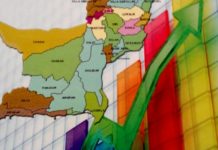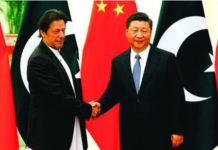Sajid Ali
On May 21, 2017, Hamas made public its new charter. The 42-article document explains the movement’s general principles and objectives, enunciating its positions on different issues relating to Israel-Palestine conflict. Unlike its previous charter, issued in August 1988, which was, “a maximalist and decidedly racist document” to quote Sara Roy, the new document reflects Hamas’ evolved stances on different aspects of Israel-Palestine conflict. A careful perusal and comparative scrutiny of the two charters brings forth the key differences.
One of the salient features of the new document is the emphasis on the nationalistic character of Hamas’ struggle, calling itself “Palestinian Islamic national liberation and resistance movement,” not just “The Islamic Resistance Movement,” as it had previously done. In the Charter of Allah, the subtitle of 1988 document, Hamas couched its message in racist idiom, calling for the elimination of Jews and making future peace dependent upon fighting and killing them. The new organization document pits the Palestinian liberation movement not against Jews but the colonial Zionist project, which it rightly calls “anti-human” and “racist”. Article 16 of the charter reads: “Hamas reaffirms that its conflict is with the Zionist project not with the Jews because of their religion”. In its previous organizational document Hamas explicitly said that it was part of Muslim Brotherhood, this time around the word Muslim Brotherhood is completely missing from the charter. The most important characteristics of the new charter is Hamas’ recognition of two-state solution on the basis of 1967 borders, though without recognizing Israel, considering it an illegal entity. Ironically, for Hamas the Palestinian ‘land’ is an integral territorial unit, extending ‘from River Jordan in the east to the Mediterrean in the west and from Rasal-Naqurah in the north to Umm al-Rahresh to the south,” in short all of Israel including Jerusalem, West Bank and Gaza Strip.Israel rejected the charter, calling it an attempt “to fool the world”.
Is Hamas’ new charter, especially its affirmation of a two-state solution, a watershed? Textually yes. Politically no. Compared with Hamas’ 1988 charter, the new organizational document evidently entails many significant changes. But going beyond a textual approach and focusing on its politics and evolution as a resistance movement will yield conclusions that defy popular perceptions about Hamas. Perceptions that make Hamas a terrorist organization, rigid in its approach, averse to the notion of peaceful coexistence and a big hindrance to durable peace. In its three-decade existence, Hamas has shown tremendous adaptability, sensitivity to popular feelings and political flexibility, be it in sending individual candidates in Palestinian National Authority (PNA), participating and winning the elections in occupied territories in2006, unfortunately followed by westerns sanctions, making a mockery of their claims of standing up for democracy, or tampering down of its militaristic approach in response to negative reactions from Palestinian people, who had to bear the brunt of Israeli brutality. Even Hamas’ decision to accept the viability of a two-state solution is nothing new. Two illustrations suffice. During a 2009 interview given to the New York Times, Khaled Meshal, the Hamas Chief, had this to say: “The most important thing is what Hamas is doing and the policies it is adopting today…Hamas has accepted national reconciliation document. It has accepted a Palestinian state on the 1967 borders including East Jerusalem, dismantling settlements and the right of return based on a long term truce. Hamas has offered a vision. Therefore, it is not logical for the international community to get stuck on sentences written twenty years ago”. Former Mossad director, Ephreim Halevy, told Israeli cabinet in December 2008, just before the Israeli attacks on Gaza, “They(Hamas) are ready and willing to see establishment of a Palestinian state in the temporary borders of 1967…They know that the moment a Palestine state is established with their cooperation, they will be obligated to change the rules of game. They will have to adopt a path that could lead them far from their original goals”.
It has not been Hamas but Israel that has precluded a peaceful resolution of Israel-Palestine conflict by undermining two-state solution through its policies of settlement expansion, territorial canonization, land expropriation and demographic isolation. Even under the fig leaf of political negotiations and peace talks, Israel has perpetuated its actions of gobbling up more Palestinian territories, creating a series of bantustans in West Bank, occupied in 1967 war. For perspective consider these facts: during the Oslo peace process (1993) settlements in West Bank covered 77 kilometers and 248,000 Israeli settlers. Last year, those settlements had reached 197 kilometers and number of settlers going up to 763,000. It is important to bear in mind that occupied territories are just 22 percent of historic Palestine.
Crucially Hamas’ new charter coincides with the declassification of Israeli military documents and cabinet meetings on 1967 war, what Palestinians call ‘naksa’. The minutes of cabinet meetings give some insights into the thinking of Israeli leaders vis-à-vis Palestinians and occupied territories. A few days after the war, ministers discussed the political and diplomatic future of occupied territories. Levi Eshkol, Israeli prime minister, said, “If it were up to us, we would send all the Arabs out to Brazil”. On the June 14, Abba Ebban, the-then Israeli foreign minister, told the cabinet ministers, “In the history of mankind there has been nothing like the public diplomacy success Israel has had this past month. Israel is expanding and expanding like this and the world is applauding”. The world might not be applauding now, but how true these words ring even fifty years after they were first spoken.
Sajid Ali is an IPI Resident Scholar specializing in Middle East affairs.






























